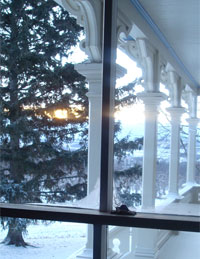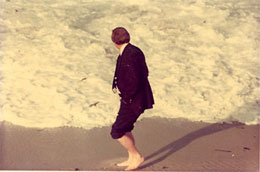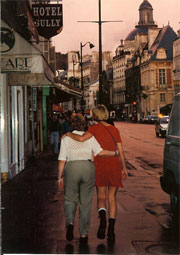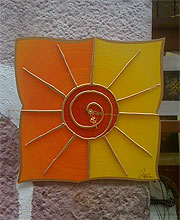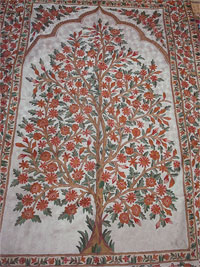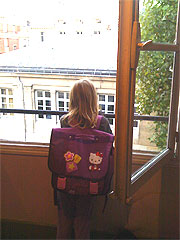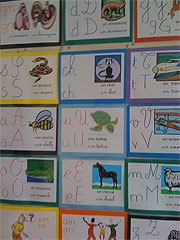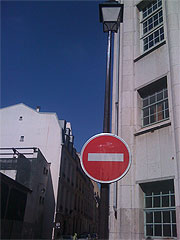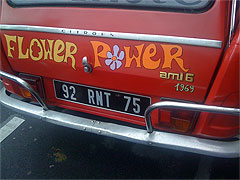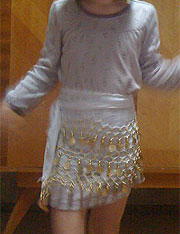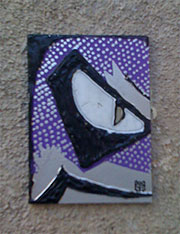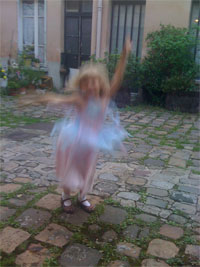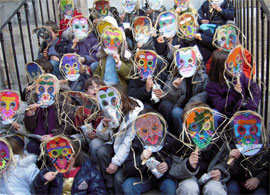Just the Doing of It
We arrived in the dark. Not the optimal time to get started at the country house. There was everything to do as dusk turned to night, fumbling with rusty skeleton keys to open the doors, switching on the electricity, venturing 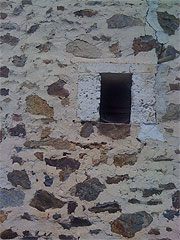 out to the yard to uncover the water pump to open its valves, visiting each tap in and around the house to turn off what had been left on to prevent pipes freezing, unpacking the car, stocking the fridge with groceries we purchased at lightening speed at the hypermarket ½-hour away, its closing hour pressing in on us as we raced to the check-out. De-facto set to light the wood stove, which took forever to start burning and once lit, seemed to take forever to heat the room framed by the stone walls that have assumed the outside temperatures that get cooler with each passing day.
out to the yard to uncover the water pump to open its valves, visiting each tap in and around the house to turn off what had been left on to prevent pipes freezing, unpacking the car, stocking the fridge with groceries we purchased at lightening speed at the hypermarket ½-hour away, its closing hour pressing in on us as we raced to the check-out. De-facto set to light the wood stove, which took forever to start burning and once lit, seemed to take forever to heat the room framed by the stone walls that have assumed the outside temperatures that get cooler with each passing day.
We huddled over our dinner, shivering. Without hot water (it takes hours for the heater to deliver) we left the dishes for the mice and the morning and bracing ourselves, headed upstairs to the unheated bedrooms. Quickly stretching the cold, clean sheets over dusty mattresses, we fell into our beds waiting for the warmth and dreams to come. In the morning, frost inside the windows, and a light layer of white on the meadow across the road, but the sky blue and clear and fresh and that feeling of how good it is to be here á la campagne.
I rose and wrapped my icy hands around a warm bowl of café-au-lait and slid into my wellies and out to the yard to inspect my grapes. Take note of the possessive pronoun that has been assigned to these eleven stalks inherited when we purchased the property. I share ownership of this house with De-facto and his brother, but the grapes – they are mine. I’ve assumed the role of vineyard caretaker. Last year’s vendange managed to produce a single, but thrilling, crate of grapes. It took several years of cutting and caressing the abandoned vines, but finally, I’d found the right result. The crop was small, but it informed and inspired my approach for the year to follow: Last winter I cut them back more than ever before. In April, new wires secured the vines. In July, suckering and pruning revealed bunches and bunches of baby grapes, and the promise of a robust harvest.
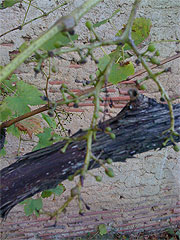
Only September took us to far away places that made a quick weekend trip to the country house impossible. Our first opportunity comes now, with the school half-term break otherwise known as La Toussaint. A bit late for harvesting, but I held out some hope that at least a portion of the grapes could be salvaged. My inspection grew more discouraging with each vine. The birds had picked them over, they’d fallen to the ground, or a skeletal bunch of grapes remained, scrawny raisins, taunting me.
I came too late to harvest anything significant – anything at all, for that matter.
Today, clippers in hand, a deeply inhaled breath of country air and I started pruning and clearing. The work is not easy. Some vines have crawled up into the trees and require a tug-of-war to pull them down. (I am somewhat lenient with them, otherwise they’d be trimmed and thinned but since I am not here for months at a time, they grow with a wildness that a disciplined viticulturist would not permit.) The long serpentine limbs fall to the ground and I cut them into smaller pieces, one at a time, to be hauled away to the compost. The thicker vines I separate and cut into kindling, taking them to the stable to dry to be burned in future winters. I pull out the thorny weeds and dry grasses that have grown wild at the base of the stalk, raking again and again until all I can see is a soft bed of the terroir. The vines look relieved, freed of the weight of their long branches and leaves. They stand spry and lithe, my knobby, skinny friends, unburdened and smiling at me.
The girls, dressed in a hodgepodge of old clothes and torn fleeces that we keep here – a wardrobe that can get dirty and ripped and who cares – kick their toes upward to the sky, swinging together so hard that I wonder if the 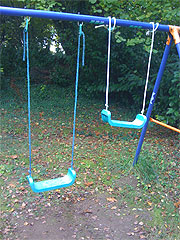 old swing set will topple. They run back and forth from house to garden, woods to field, shaking sticks and making up songs and stories. The swing set transforms into a pirate ship or a schoolhouse, whatever they require as a backdrop. Their play is as temporary as anything can be – made-up games in a made-up world that are made-up in the moment. There is no practice for this; no preparation for a final performance, and no expectation of an outcome. This is play in its purest form, just for the doing of it. They play with passion and zeal until a new story is offered up or something else distracts them in that moment, like a neighbor passing by with a sheep dog, or my mother-in-love calling to them from the house, “hot chocolate!” which instantly frees them from this moment, without a measure of its value, and they move on to the next.
old swing set will topple. They run back and forth from house to garden, woods to field, shaking sticks and making up songs and stories. The swing set transforms into a pirate ship or a schoolhouse, whatever they require as a backdrop. Their play is as temporary as anything can be – made-up games in a made-up world that are made-up in the moment. There is no practice for this; no preparation for a final performance, and no expectation of an outcome. This is play in its purest form, just for the doing of it. They play with passion and zeal until a new story is offered up or something else distracts them in that moment, like a neighbor passing by with a sheep dog, or my mother-in-love calling to them from the house, “hot chocolate!” which instantly frees them from this moment, without a measure of its value, and they move on to the next.
Clippers in hand, the rake rested against the thick stone wall of the house, I look around at the lawn cluttered with leaves and cuttings and consider my story with the grapes. It’s futile, really. Given the amount of time I can devote to these vines, given their ill placement with insufficient sunlight, given my real knowledge of anything beyond what I learned as a seasonal worker during school vacations, I will never be a great grape grower. I will never make a fine wine. It is the silliest, most pointless work I do, year-in and year-out, work that will never be successful. And yet I toil for hours, my hands raw despite the protective gloves, my back aching from the bending and scooping and hauling and carrying.
Buddy-roo spies the old wheelbarrow and asks if she can help. During our first year here, we bought a shiny new metal one and its wheel broke off after just a year of use. The old rickety wooden one that we found in the stable has a lot more character and still rolls strong.
“Can I be the horsie?”
“Sure.”
“Tie me in.”
“I don’t have any rope.”
“You can use the imaginary rope I have right here.” She reaches out, as if to hand it to me.
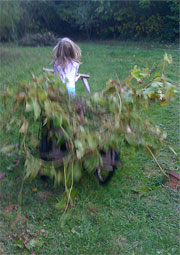
This is my play, I guess, here at the country house, to tend the grapes. Even though it turns out just to be an agricultural exercise, even if there’s no harvest, I find it immensely satisfying. It’s all worth it, to love just the doing of it, regardless of the outcome. I’m pretty sure this is the trick to most things: being present with the doing of it, deliberately enacting the tiny tasks of life, one vine at a time. It’s just not always easy for me to cultivate this attitude of a mindful life. It takes the simplest of tasks and a playful child to remind me how.
I make the motions of harnessing Buddy-roo to the wooden cart. She provides the sound effects: Chtck. Ctchk. I fill the wagon to the brim with vines and leaves. She neighs, kicks the ground, and then gallops toward the compost pile with glee.
